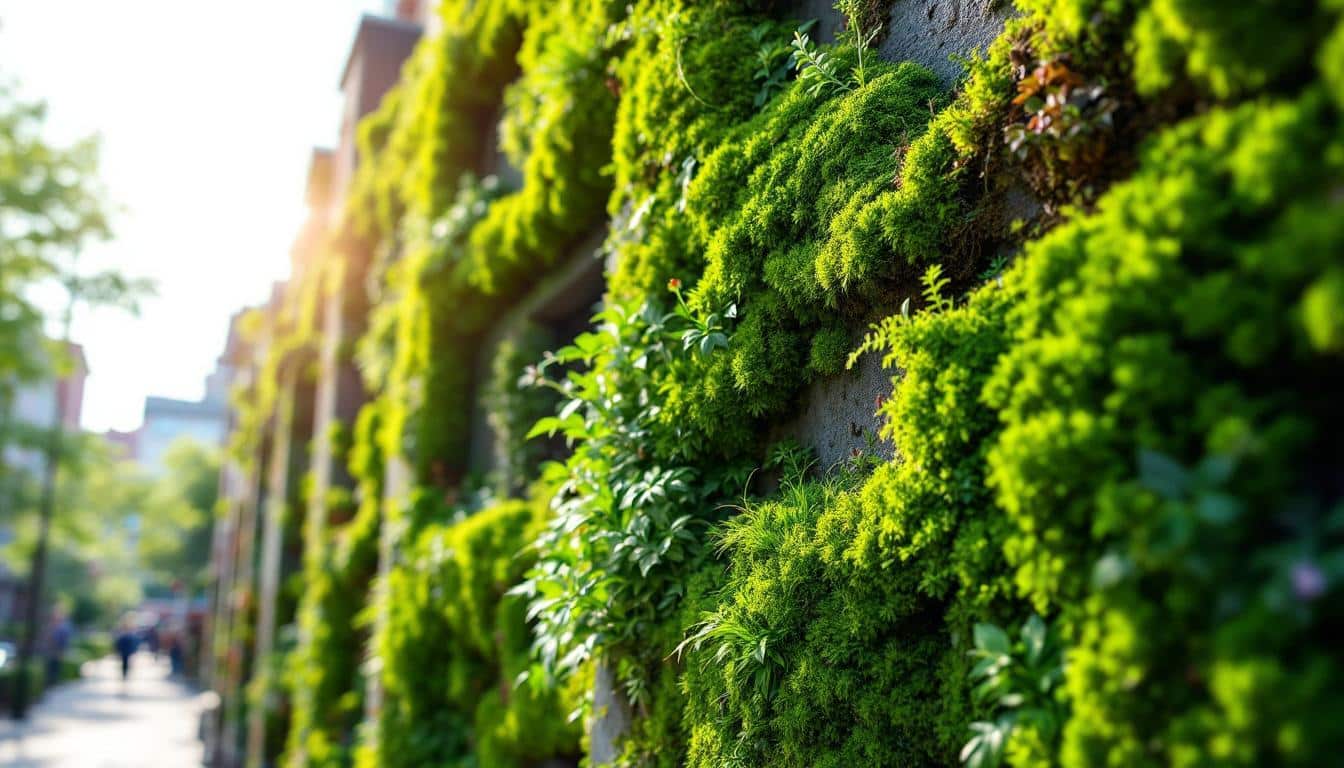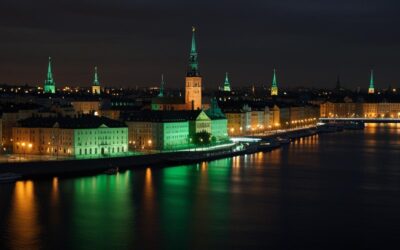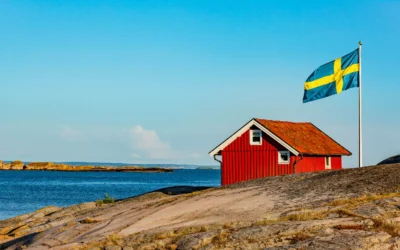Respyre, a Dutch start-up backed by TU Delft, has developed a bioreceptive concrete that supports moss growth on buildings. This can reduce urban heat by up to 30%, purify air pollutants, and boost biodiversity with low maintenance and high scalability.
In a move that could transform the look and environmental impact of urban areas, Respyre, has developed an innovative bioreceptive concrete designed to support moss growth on building surfaces without compromising structural integrity. This moss-growing concrete actively addresses some of the most pressing urban challenges such as rising temperatures, air pollution, and biodiversity loss, by turning lifeless, heat-retaining concrete facades into living, eco-functional surfaces.
The secret lies in a specially formulated layer that incorporates 70% recycled materials and improved porosity to retain moisture and nurture moss growth. Unlike traditional concrete, which absorbs and reradiates heat, often escalating urban heat islands, this bioreceptive concrete cools environments through evapotranspiration. It can reduce surface temperatures by up to 25-30% after rainfall. Its increased albedo, or reflectivity, also helps bounce solar radiation away, contributing to lower building temperatures and energy savings by lessening the need for air conditioning. Independent research by Respyre even suggests that the cooling benefits are comparable to removing 25-75 kilograms of CO2 per square meter, highlighting its potential as a climate-positive urban material.
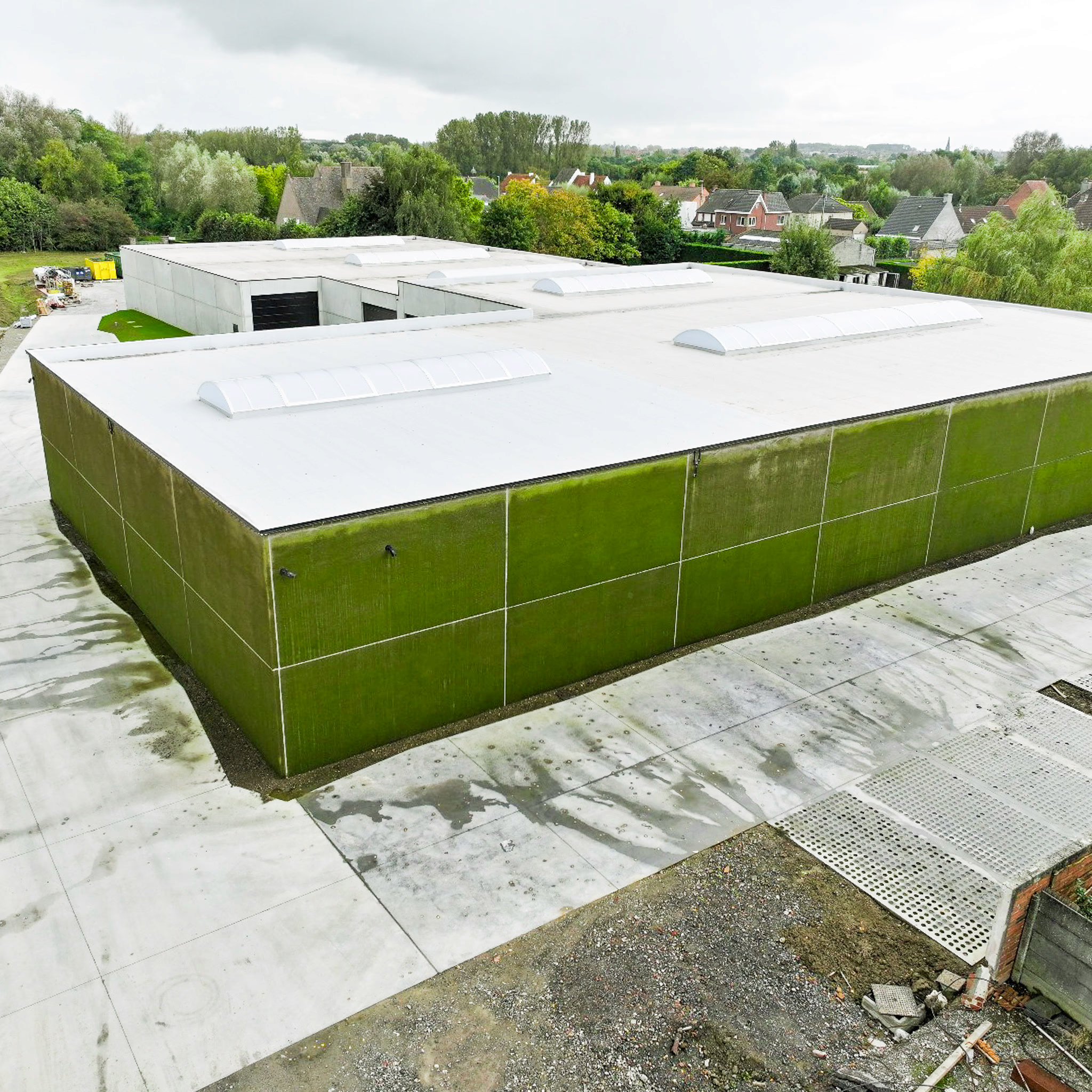
This large storage building has been transformed with Respyre’s moss installations. Covering 450 m², this moss facade is currently the company’s largest project to date.
Beyond temperature regulation, the moss itself functions as a natural air purifier, effectively absorbing harmful pollutants like particulate matter (PM2.5 and PM10) and nitrogen oxides. Studies show moss-covered surfaces can remove up to 40-46% of these airborne pollutants, which are linked to severe respiratory ailments in densely populated areas. This ability to filter and clean urban air positions moss concrete as a simple yet powerful tool for improving public health in cities struggling with pollution.
From an ecological standpoint, the moss-covered surfaces create microhabitats for insects and small wildlife, fostering greater biodiversity within urban environments. Surveys in Dutch cities have identified over two dozen moss species capable of colonizing these concrete surfaces, with several acting as pioneer species that stabilize communities and support other urban flora and fauna. This revival of urban ecosystems provides essential green corridors and habitats amidst concrete jungles, promoting healthier environments for both wildlife and humans.
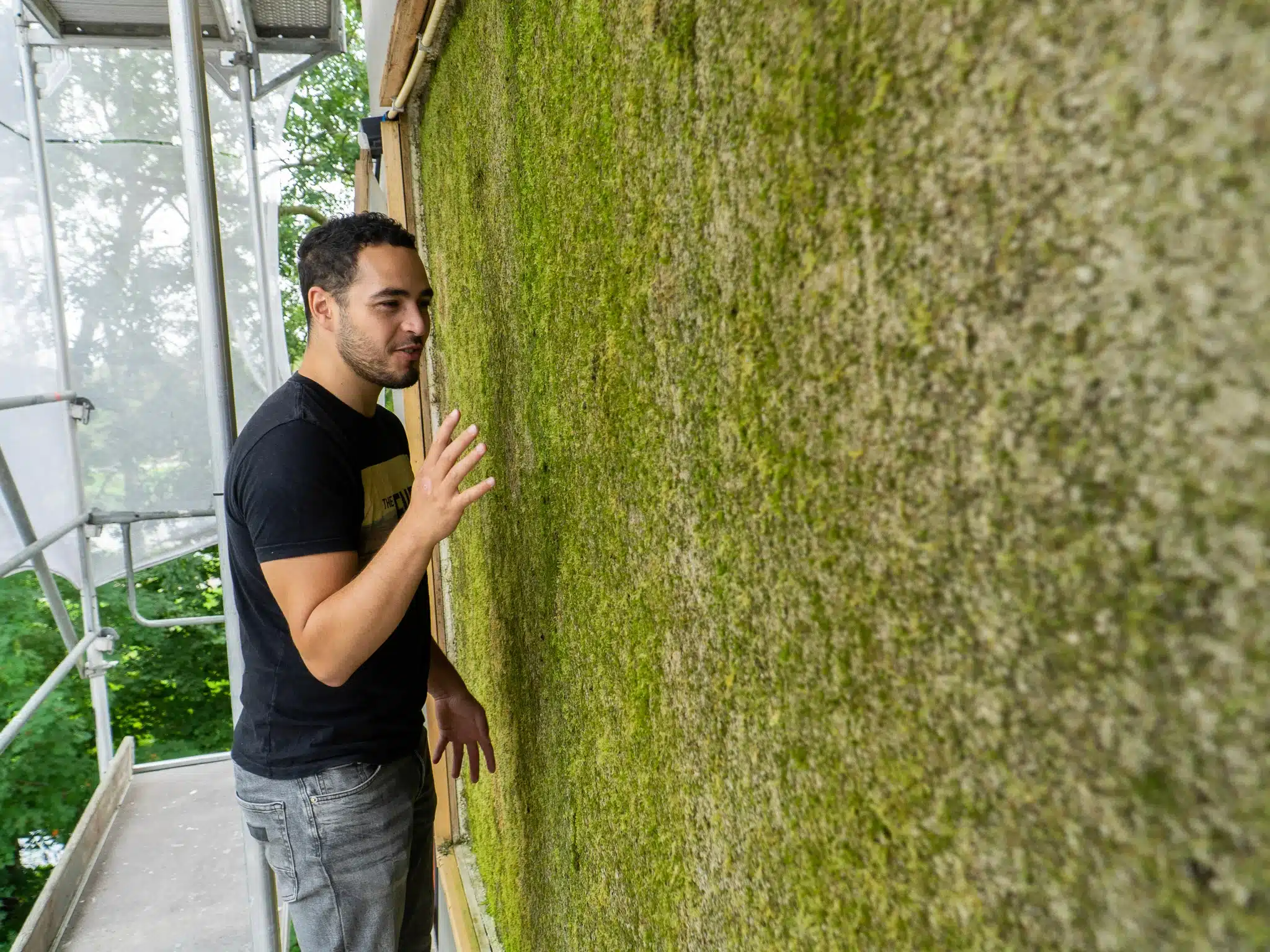
In Purmerend, Respyre is working on a pilot at the apartment building D’ Groene Citer, in collaboration with Hemubo. This initiative aims to assess the resilience of moss at varying heights, reaching up to 20 meters.
A key advantage of Respyre’s moss concrete is its cost-effectiveness and low maintenance. Unlike conventional green walls, which can demand costly irrigation and upkeep, moss requires no watering, pruning, or fertilization once established. The material can be applied as a coating over existing structures without modifying load-bearing concrete, allowing easy integration into ongoing construction and renovation projects. This scalability ensures that moss concrete can be deployed widely and economically to green entire city districts, highways, and industrial areas.
Real-world implementations are already underway. In Amsterdam’s Rivierenbuurt district, social housing balconies now showcase moss-covered surfaces, while moss concrete is being tested for industrial applications such as wind turbine bases. The Marineterrein Amsterdam Living Lab hosts an experimental moss wall that has attracted insects like spiders and ants, validating the technology’s biodiversity benefits. These projects underline the feasibility and ecological promise of moss concrete as an urban greening solution.
Looking forward, the technology is poised for expansion and refinement, with ongoing research exploring how to support a broader range of plant and microorganism ecosystems on bioreceptive surfaces. The adoption of moss concrete aligns closely with European Union sustainability objectives, offering cities a multi-benefit material that combats heat, purifies air, supports biodiversity, and reduces carbon emissions. As climate change intensifies challenges for urban dwellers, innovations like Respyre’s moss-growing concrete offer a practical, elegant way to create cooler, cleaner, and more liveable urban environments for future generations.

